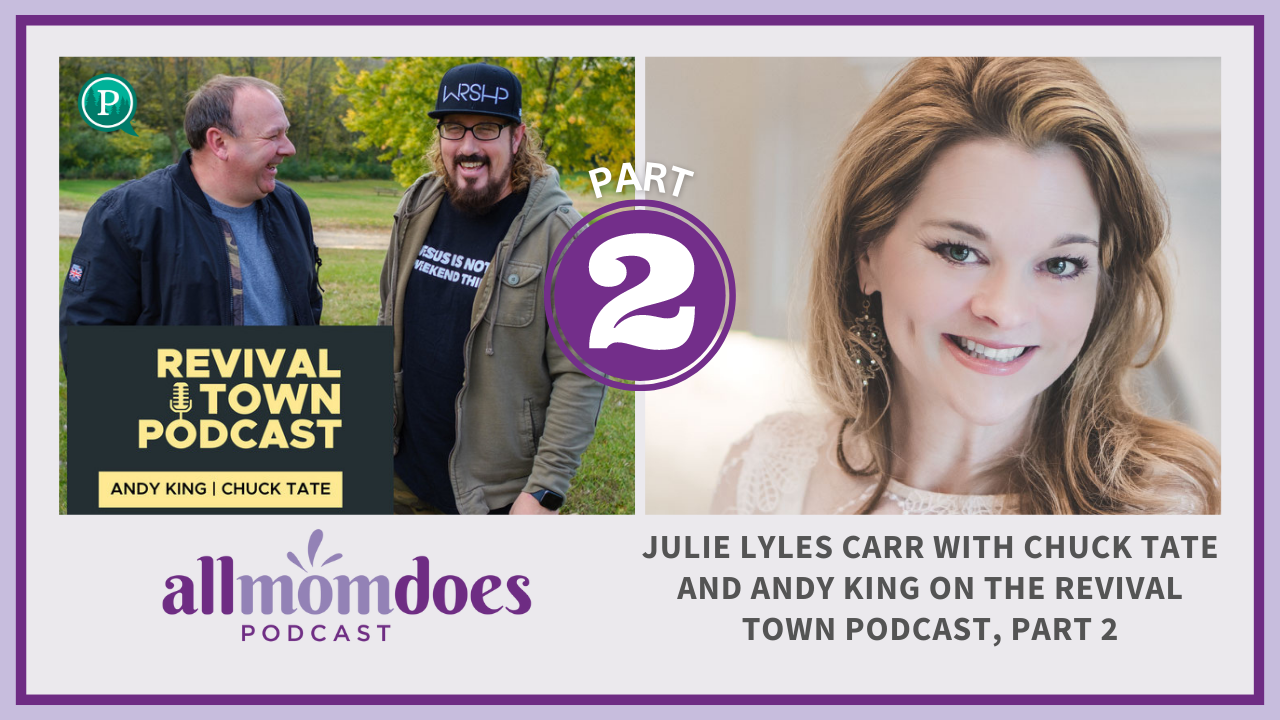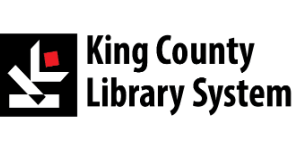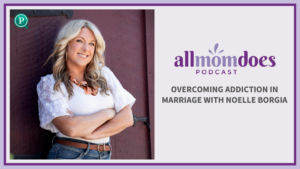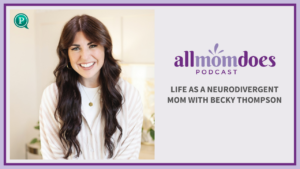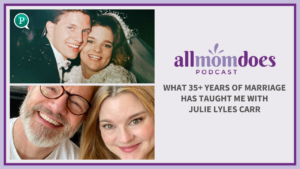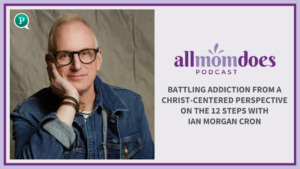We’re back for Part 2 of switching up the mics and Julie being the guest as we share her conversation with Chuck Tate and Andy King of The Revival Town Podcast! What’s the difference in helping our kids find their purpose versus their vocation? What does apologizing to your kid look like? How do you build relationships with your children today that will carry your bond into tomorrow? The conversation continues in this special episode from the Revival Town Podcast on The AllMomDoes Podcast.
Special thanks to the King County Library System for sponsoring the AllMomDoes Podcast!
Show Notes:
Revival Town: Online | Instagram | Facebook | Twitter
Find Julie: Online | Instagram | Facebook | Twitter | Pinterest
AllMomDoes | Instagram | Facebook | Twitter
Transcription:
Julie Lyles Carr:
Today, we are switching it up. I’m on the other side of the microphone. This is part two of a rebroadcast of a podcast episode that I got to do with my dear friends, Chuck Tate and Andy King. Their podcast is called the Revival Town Podcast. I was so honored to be a guest, and we have a great conversation about raising kids and what it’s like to be a woman today in the world, and all of the things that I think really hit home for so many of us. So this is part two. If you haven’t listened to part one, go back and check it out. And so, here I am today on the other side of the microphone with Chuck and Andy.
I can remember a time, that had been maybe my first or second child, and I felt like I was getting shame from someone out there looking at my kid and the kind of embarrassment and weight that I would’ve carried because my kid wasn’t being perfect, my kid wasn’t acting like they were supposed to act. So, in that way, I think we have to give each other a break as moms and dads within the parenting world. I always want to exhibit tremendous grace to the parent who is having the kid have the meltdown in the grocery aisle. I want to not stick my nose in with somebody who, clearly the child is safe and the kid’s just throwing a fit.
Give each other a break on some of this stuff. Be thoughtful so that we don’t create this standard that we all think we have to present our kids as perfect kids in order to prove the kind of parent we are. Now, the second part of that statement in terms of we’re not to be raising perfect kids, but kids with purpose, purposed kids, is we have to be careful to separate the difference between a purpose and a vocation. A lot of times as parents, because we want for our kids to have bright futures and we want to be able to answer at the party, “Well, what does your kid do?” “Well, my kids said whatever, dentist, lawyer, whatever.”
Because we get so focused at times on vocation, we can miss the step of helping our kids understand what their purpose in life is. And the reality is, for all of us, myself included, we’re going to have many iterations of career. I mean, at this point in our lives, right guys, how many people do we know that they went to college for this and they interned for that and they spent 5, 10 years doing that thing. But now, they’re doing something completely unrelated, or maybe somewhat related, but certainly not in the original lane in which they started. We know that kids are going to change majors in college now an average of five times. We know that today’s people, in careers, will change careers at least seven times over the course of their life.
So, this focus we often have on trying to drive our kids toward a vocation, rather than helping them discover who they are and empower who they are so that whoever they are, they bring to a vocation rather than a vocation being the thing that defines them, this is a place in our parenting that, particularly, when I look back as being a kid in that yuppie era, I think we missed it sometimes. And I think that those of us who are raised to put career first and ambitions and all those things, we can be in real danger of missing it with our own kids. Helping our kids find purpose is really that place of understanding the intersection of their personalities, their giftings, the things maybe they feel a little scared to do because sometimes there’s some great treasure in that. Sometimes, the thing you’re really scared to do can often be the thing you might just really be called to do, like a Gideon, like so many that we see in the word of God.
But to really help them understand who they are and why they’re going to be walking forward in life and the way in which they are, I think, is far more instructive and helpful than helping them figure out if they’re going to be a vet or not.
Chuck Tate:
That’s so good. And I know that there are perhaps parents listening, whether a mom or a dad, and they get that. But there are some that, they haven’t truly embraced the role they have as a parent. I mean, one of the things you said in Raising an Original is whether your child is a challenge or a charm. God has appointed you as the child’s parent. So, how important is it for us to embrace our own role as a parent? And maybe, we didn’t even want to be a parent, but it’s too bad. We have a responsibility now to raise up a child and to teach them the difference between purpose and vocation, like you said. So can you encourage mom and dad listening right now, and maybe expound upon the responsibility they have as cheerleader, advocate, disciplinary and all the above?
Julie Lyles Carr:
Right. For a lot of us, I think we are still trying to figure out our own path and purpose and all those things. And in that, sometimes the thing that is most obvious that’s standing in front of us can get missed. So the reality is, if you’ve got a child in your home, however that child arrived, whether you’re fostering, whether it’s by birth, whether you’ve adopted a child, whether you have your niece and nephew because your sibling’s going through a hard time and now these kids are in your home, guess what? Whatever else you have figured out in your life or you haven’t, you are a parent. You have been called to that. That is what you are doing right now. That is where you are. Now, as part of that, and as part of embracing that, I think where we have really struggled at times is we seem to have these two polarities when we think of parenting.
One is this punisher disciplinarian, very authoritative, I am going to break and then remold this kid who’s been put into my care and keeping. The flip side of all of it is someone who I call the concierge, the person who thinks that they’re just there at the front desk trying to make this kid’s Disney World life all come true, whatever that looks like. Those two extremes can leave us in a place where we’re really not actually parenting.
Chuck Tate:
Wow.
Julie Lyles Carr:
Parenting is somewhere in the center of that. Parenting is serving. I get tickled when I encounter parents who have already predetermined before a child is born, exactly what the schedule’s going to look like every day, and they’re telling me, my life and my relationship with my spouse and my relationship with my friend group, none of that is going to change. We’re bringing this child into our lives, our life will not become this child.
I’m like, “And good luck. You just signed up to have a baby with colic.” Those are the magic words you say if you want a kid who’s going to give you a hard time.
Chuck Tate:
Yes.
Julie Lyles Carr:
And part of it is we’re going to miss the lesson. I don’t see that God was looking for convenience when he created all of us. I don’t see that having somebody perfectly scheduled and conveniently fitted into your life leaves you any room to discover just how much more there is in you, just how much more you can grow, just how much more you can expand your patience and your willingness to listen through, and your willingness to, yes, invite a child into your world, but also to accept the invitation when you’re being invited into your child’s world. And so, when we have these two extremes and we struggle with these two extremes, we can miss it.
Somehow with God’s help, if we can come to the place where, yes, there are moments that we do have to be that person to say, “Okay, here’s the line and we’re not going any further, and if we go further, there’s going to be a consequence.” We have to be that person, but we also are the person who’s going to teach our child about friendship, and we’re going to teach our child about forgiveness, and we’re going to teach our child about letting someone else come first and someone else’s needs come first. That’s really the sweet spot where I think we start getting into the groove of parenting in a way that is so profound and so much more powerful. And when we can find that rhythm, I think the joy comes back in parenting.
If we’re so far on the side of authoritarian, we find ourselves often just irritated and angry a lot. And if we’re too far on the side of concierge, we find ourselves depleted, we find ourselves feeling a bit of a martyr. But when we can come to the place where we really parent, we’re coming alongside, we are both accepting the responsibility and reveling in it, and we’re on a journey of discovery for who our kids are, and we’re on a journey of showing them as pioneers what it means to live in the world.
When we can accomplish those places and leave behind some of these extremes, I think that’s where we’re able to really find a place that feels good, even if parenting was unexpected for us, even if it’s something that we didn’t imagine for ourselves or it’s harder than we ever imagined, I think those are the places where we really find people thrive. And when we thrive, our kids thrive.
Andy King:
That’s good. That’s really good. And talking about that, and especially knowing your kid, you bring something out in your book, Raising an Original, called ropes, or it’s the child’s personality style, and that is so critical to really knowing your child, but to also be able to help them find purpose. Can you explain that for folks, the whole ropes concept?
Julie Lyles Carr:
It’s fascinating to me because, one of my degrees is in psychology, and we, back when I was getting my degree, that degree, a long, long time ago in a galaxy far away, we looked at kids as really not having discernible personality that we were willing to identify until they’re around the age of 12. Now, as research has accelerated beyond that point, we now know, we can now see through longitudinal studies that things that even babies express as infants, we now can see, looking over the next decades of their lives, “Oh wow, that person really did exhibit these kind of personality traits earlier.”
So I think it’s been a really exciting time to take a look at that. In the ropes, what we unpack, and I tried to make it simple and something that people are familiar with. If you’re familiar with the DISC assessment, a lot of us have seen that and taken that, and this is an adaptation of that to help parents, again, not to be diagnostic, but to take parents on a journey of discovery of their child, because there are markers we can see with children that help us understand a little bit about the motivations in their life, what’s important to them, what drives them.
And so, I changed the verbiage that goes typically with the DISC assessment, but we changed it to the director, the inspirer, the steadfast and the curator. And we see these personality styles. A director is someone who has that ability to go on a playground and say, “Everybody, come over here.” And everybody does. They magically line up. I mean, it’s just the most incredible thing. And this kid has not been through a business management class, This kid has not taken StrengthsFinder, they just naturally seem to know how to rally a parade and get everybody on the same objective that they have, and they go forth in March.
The inspire is that kid who can come into a room and is just sunny and really enjoys making everybody happy. Sometimes they’re the class clowns, sometimes they’re the person who just is jolly and just changes the energy in a room. The steadfast is the one who doesn’t need a lot of people, but boy, the people he has, he’s devoted to and he really needs those people, and he really loves those people. And he likes things to be pretty consistent, but it’s about safety and it’s about feeling comfort and knowing your surroundings and knowing your people. And the curator is the one that I say is someone who labels their label maker. And they don’t need a lot of people, they just need a great project and get out of their way.
Where none of us fall cleanly into one of these categories, but most of us have one that we trend toward more strongly. We as parents all fall somewhere within that range as well. So when you’re able to identify some things in your children, in their personalities, and you also are able to identify some things in your personality, it helps you be better equipped to both celebrate them and to understand where you might have some friction, or sometimes that you’re challenged to understand what your kid is doing.
So for example, you can have, let’s say that you’re the curator. Let’s say that your pantry looks like something out of an Instagram post. You love to label things, everything’s lined up and all the things. Well, I find a lot of times, I’m not calling this gospel, but it feels like God will typically give you a kid who’s just like you, and then he’ll give you one that’s just the absolute opposite of you. And those scenarios drive you crazy. Anything you don’t like in yourself that you weren’t-
Chuck Tate:
And I hope people are taking notes. This is so good. Go ahead.
Julie Lyles Carr:
… So you have the one who’s like you that you’re just like, “Oh no.” And then you have the one that you just don’t get at all. Let’s say you’re a curator, and the pantry’s alphabetized and label makers labeled, and God gives you a kid that we call an inspirer. Well, you have to understand that for an inspirer, their highest values are hanging out with people, community and having a great time. That is what drives them. For you as a curator, what drives you is an internal sense of order, an internal sense of control. And so, the things that drive you, that God imbued you with, are very polar in that situation. So you tell an inspire kid to go up and clean his room, he wanders up for five minutes, comes bounding back down. He’s like, “I’m done.” And there’s no way. There’s no possible way.
You go up, sure enough, the room’s a disaster. Has he disobeyed you? Has he defied you? Well, no. He carved a path from the front door to the bed. And for him, that’s good enough. What was most important was to get back to community and hang out with people and see how you’re doing. So does that mean as a curator that you have to give up on the idea of ever being able to see your child’s bedroom floor? No. But what it does mean is you help adapt it for the things that motivate him.
So, you say, “Okay, I tell you what. We’re going to make this a dance party, and we’re on a mission and we’re trying to find that one action figure that you lost three months ago, and we’re going to divide the room into a quadrant with tape, and we got to pretend like there’s hot lava on the floor and there’s going to be peanut M&Ms and there’s going to be party music, and we’re going to do all these things and we’re going to make it fun.”
And when we do that, all of a sudden we take a kid who maybe we thought was dragging his feet or being defiant and we’re speaking his language. Now it’s a party, now it’s in community, now it’s for the purpose of having fun, and you’re going to get way more done with your kid when you approach him that way than if you continue to only speak your curator Kling-on which he’s never going to understand.
Chuck Tate:
Yes, yes. I feel so much better.
Julie Lyles Carr:
Some of my very favorite summer memories are when I would go to the library during the summer as a kid and I would just sit myself down in front of an aisle and just pull book after book after book, doing all kinds of reading and dreaming and researching, and that is something I still carry with me to this day. There’s just something about getting into the library and taking some time to peruse the aisles, look at different things, let my mind go in different directions. And guess what? That’s what we want you to do with the King County Library System because this summer, there’s a summer reading program for all ages.
You can earn prizes for reading, you can enjoy different programs and activities at the library, all summer long. This free summer reading program is open to children, teens, and adults, and here’s the goal. Your goal is to read 20 minutes per day, or you can set your own reading goal if you want, through August 31st. Any kind of reading counts. So this includes reading to someone else out loud or listening to an audiobook, or taking that little summer read to the pool while you play in the sunshine. So be sure and visit your community library to pick up a reading challenge log or go to kcls.org/summer. That’s kcs.org/summer to get started.
So, book it, see what I did there, to your King County Library System and be sure and sign up for the summer reading program.
Chuck Tate:
Julie, we want to thank you so much for taking time out of your schedule to share some insight and wisdom with us. And I know Andy’s going to ask you to pray in a moment, but before that, can you just take a moment and speak to every mom and dad listening right now who feels like it’s too late? They feel like a failure as a parent.
Julie Lyles Carr:
These are the seasons that are so tough. And I think for those of us who’ve been in the parenting trenches for a long time and were very aware that we gave up, if you will, the years of our youth and the other things that maybe we could have pursued to invest in these kids. And when we see outcomes that are just make us a little sick at heart or frustrated, or we look back on the way we did things when our kids are younger, even if our kids haven’t launched and we’re like, “Oh man, I was such an angry mom,” or, “I was such a negative dad,” or, “I was such a distracted mom,” or whatever the thing is, what I do know is that we serve a God of redemption. And I have seen parents who will self-admittedly say, “Man, I blew it,” Or felt ill-equipped for a child that God put into their keeping and care and they didn’t have the resources, they didn’t have the tools, and they really tried their best, but it went sideways.
But what I can tell you is, A, God knows what that feels like. He’s got 7 billion children on this planet, and we know by a percentage, not a lot of them are in the kind of relationship with Him and are having lives emblematic of the best lives He would have for them. God gets it because he has that experience as a parent. And so, if the God of creation can have children that, because He imbued us with free will, if He can have children who don’t always get it or who go a different direction, doesn’t that tell you the compassion He has for you as a parent if that’s the experience you’re having?
But it’s never too late to also dig back in and say, “This relationship is important to me.” And for parents who are willing to say, “I apologize for the things I got wrong. I apologize for the times you didn’t feel seen. I apologize for the times that I was too authoritarian or I apologize for the times that I made your world really soft and now you’re angry because you’re discovering that’s not really what life is like.” Those places where we can apologize without some kind of clause at the end, “But I just did the best I knew how to do. But if you’d been raised the way I’d been raised.” Drop all of that.
Chuck Tate:
Yeah.
Julie Lyles Carr:
Just own what the relationship was like with your kid.
Chuck Tate:
Yeah.
Julie Lyles Carr:
That can be the balm for a healing that may have many more steps it has to go through. But when your kid sees you being honest and vulnerable, I just believe as human beings, whatever state we’re in, whatever challenges we’ve had, that honesty and vulnerability always speaks. And when parents, just as we say, we’re not supposed to raise perfect kids, we aren’t supposed to be perfect parents. We can’t be. And so, when we own that with our kids, and-
Chuck Tate:
Did you hear that, Ashley and Savannah?
Julie Lyles Carr:
… But when we own that with them-
Chuck Tate:
I hope my kids are listening.
Julie Lyles Carr:
… I know. Well, you know what? You can make a required reading, required listening. That can make a world of difference in at least beginning a communication chain again. I do find that for parents who took a more authoritarian, disciplinarian kind of approach, they typically are the ones who seem to struggle the most to stay in relationship. And part of it is because it’s very difficult to give up that role when you’ve practiced it for so long. And the reality is, if we’re parenting in a way that’s healthy, we are supposed to be parenting ourselves out of a job. We’re supposed to be working ourselves out of a job. So, to be able to make that transition with humility, with grace, with saying, “This relationship is important to me and I’m sorry for the places I was inadequate,” is a huge step in the right direction.
Andy King:
Julie, that is so good for what you have shared, and at this time, we would love for you to perhaps pray into that.
Julie Lyles Carr:
Absolutely.
Andy King:
And some of the things you’ve mentioned in this conversation today, a lot of people struggling in this area, parenting especially during Covid, could you just pray us into that? That’d be really good.
Julie Lyles Carr:
Absolutely. Well, Father, this incredible call that you’ve put on us to parent, it’s overwhelming. It’s far beyond our capacity, we know that. And at the same time, you have equipped us to do it. We just know we can never do it perfectly. And so Father, we just ask that for everyone listening, for those of us who are trying to parent and parent well, for those of us who know we’ve blown it in certain situations, for those of us who feel like we raised the bar too high or didn’t raise the bar enough, wherever we’re at in that journey, Lord, I pray that your peace just be pervasive over our histories.
Father, I know that I can parent up to a certain line, but then I have to put these kids into your keeping and care, and I have to let them write their story moving forward with you. So Father, in those places that any of us struggle to release our kids to you, help us with that. God, for those of us who bear a sense of guilt over the way things went when they were little, and we feel like it’s speaking into the today, or for those that we’ve launched and maybe they’re leading lives that were not what we had hoped they would be when they were still in our homes.
Father, I just pray that you continue to give us reminders that you haven’t given up and we don’t need to give up, and that you have such deep compassion because you as the perfect parent, still have kids who are wandering from home. So Father, encourage us, give us your peace. And Father, for each child that you entrust to us, give us specific vision, understanding, curiosity, and celebration over the individual you’ve made each of those children to be. In the name of Jesus, we ask this. Amen.
Andy King:
Amen.
Chuck Tate:
Amen. Thank you so, so much, Julie, and happy Mother’s Day to you.
Julie Lyles Carr:
Thank you.
Chuck Tate:
And real quick, we have something called the Big Three, and we’re just going to rifle three questions at you real fast.
Julie Lyles Carr:
Let’s do it. Let’s do it.
Chuck Tate:
Before we do, how can people connect with you?
Julie Lyles Carr:
You can find me on all the socials, julielylescarr.com. That’s J-U-L-I-E L-Y-L-E-S C-A-R-R dot com. On Twitter, Instagram, Facebook, all the places, love to connect with people there. You can check out the AllMomDoes podcast at allmomdoes.com, Raising an Original, and some of my other books are also available on Amazon and all the places where we buy books these days. And at your library apps, be sure and check there too.
Chuck Tate:
Yay.
Andy King:
Good. Well, we’re going to do the big three.
Julie Lyles Carr:
Okay.
Andy King:
Chuck’s going to going to start us off with a questionnaire.
Chuck Tate:
All right. Most embarrassing moment as a mom.
Julie Lyles Carr:
Oh. I hope I can say this one on air.
Chuck Tate:
Just one.
Julie Lyles Carr:
Okay. I’m going to go for it. This is going to be embarrassing, I’m going to go for it. I was wandering around all day. The twins were babies, I was still nursing. I was wandering around a day shopping, really, really busy. Felt a little off, felt a little strange, walked in front of a storefront and realized that one half of my nursing bra had been undone all day, through all the stores I’d been going to. So since we started this conversation about balance, that may be the genesis of when you realize you’re out of balance, and it wasn’t-
Andy King:
Oh man, that’s good.
Julie Lyles Carr:
… So, sorry guys, but that was probably-
Chuck Tate:
No, no, it’s very good.
Andy King:
Dream vacation.
Julie Lyles Carr:
Oh. Scotland.
Andy King:
Whoa.
Chuck Tate:
Oh, hey.
Andy King:
British. All right. Okay.
Julie Lyles Carr:
Yeah. Lyles and Carr, we have deep, deep Scottish roots. Lyles and Carr. So the Lyles hail from an area right outside of Glasgow, and the Carrs were down closer to the wall, and then the Carlyles are, we did discover we’re related distantly in the past.
Andy King:
Okay. Chuck, last one.
Chuck Tate:
All right. If you could summarate all eight of your kids with one book title, what would it be?
Julie Lyles Carr:
We laughed.
Chuck Tate:
We laughed.
Andy King:
That is good. That’s good.
Chuck Tate:
Man. Love it.
Andy King:
Well, we want to thank you for coming on today. We really appreciate this, Julie, and hopefully people will connect with you through social media and get your book and everything, because it’s been a treat for everyone listening, especially the moms during this time. And again, thank you again for being on Revival Town Podcast.
Julie Lyles Carr:
Hey, thanks so much for having me. It’s just been a joy. Thanks so much.
Chuck Tate:
Yeah, thanks Julie.
Julie Lyles Carr:
A big thanks again to Chuck and Andy for having me on, and for letting me rebroadcast this on the AllMomDoes channel. I so appreciate their generosity. Be sure and check out their podcast, the Revival Town Podcast. They’ve had amazing guests that you’re going to want to hear. Be sure and go to AllMomDoes, allmomdoes.com, AllMomDoes on the socials. We love to hear from you, to hear your questions, to hear the things you’re thinking about when it comes to your journey as a mom. And I would love for you to come by and say hi to me too. I’m Julie Lyles Carr on all the places. I’m usually over at Instagram the most though, so be sure and come over and see me there.
Hey, whenever you leave a five star rating and review for the podcast, it really does help in whatever that magic is that is the algorithm. It really does help get the word out about the podcast, and we so appreciate it when you do that, when you share links to different shows. It’s amazing. And that’s the way we continue to get the word out because of you, so thank you so much when you do that. I’ll see you next time on the AllMomDoes podcast.
Follow this podcast:

